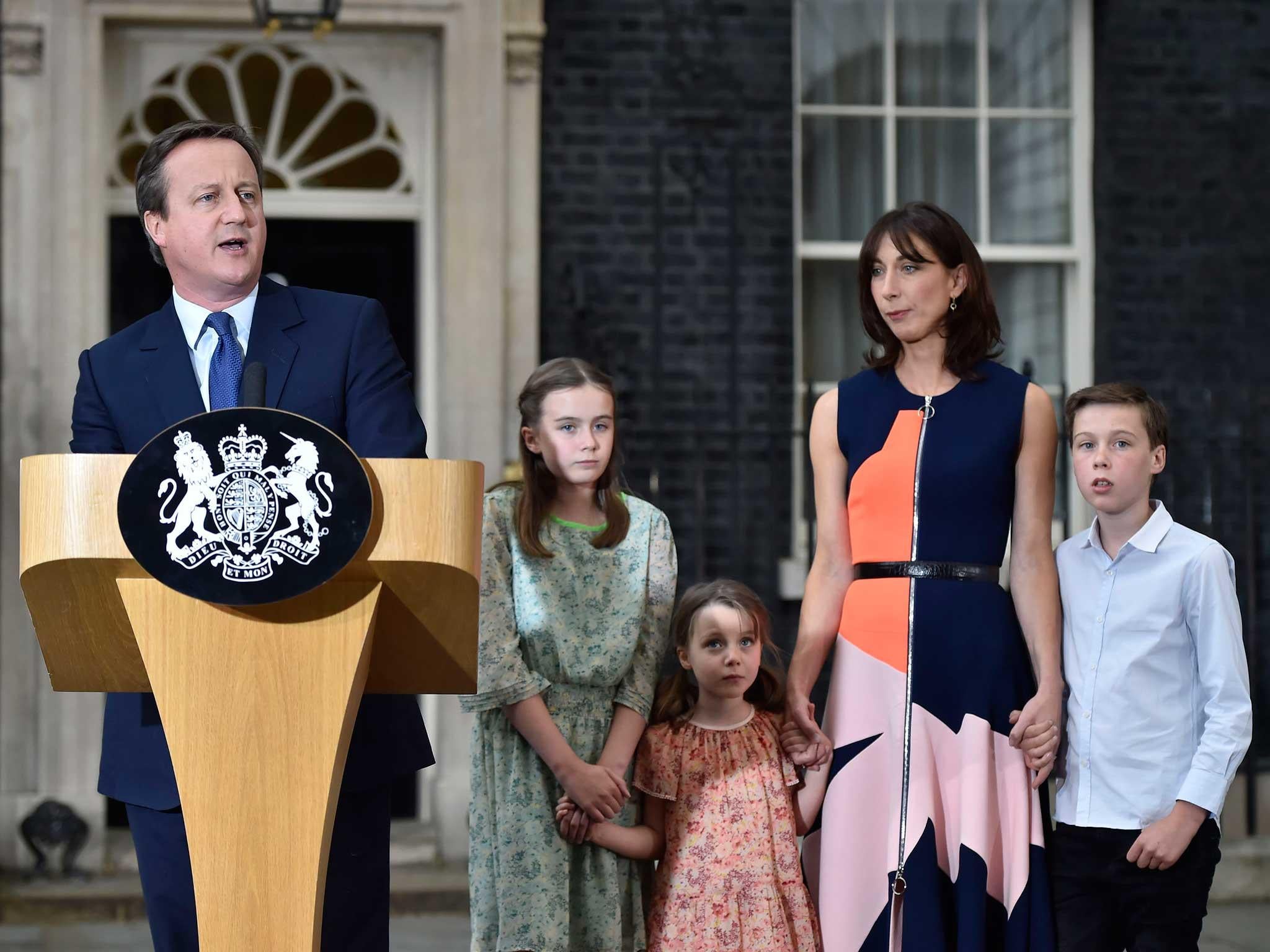Even a PR man like David Cameron can't dress up his troubling legacy
It is impossible to avoid the fact that he was the prime minister who lost Britain’s advantageous position in Europe – in the EU but outside the euro – and who may have pushed Scotland out of the UK

In the jokey, warm, sentimental glow of his valedictory session at Prime Minister’s Questions, there was one statement made by David Cameron that said all that needed to be said about the most important task facing his successor: that Britain must – must – have “proper access” to the European single market. As Mr Cameron repeated, such access is absolutely vital across the economy, and in particular for the car industry, aerospace, financial services and agriculture. All would be acutely affected by any Brexit deal that limits access to the single market and, indeed, which limits the free movement of migrant labour, skilled and unskilled, across borders.
Mr Cameron was telling his successor, rather subtly but telling her neverthless, that she will have to give the EU whatever it wants in return for that “proper access” – even if that means agreeing to migration and a contribution to the EU budget.
The former PM has enough experience of negotiating in Europe to understand the realities of trade diplomacy. As has been clear for some time, this is about the best deal the UK will be able to secure; formally putting the UK out of the EU, but remaining in the European Economic Area, working closely with the EU, conceding on the EU budget and migration, and in practical terms operating with as little change as possible. That sort of “Brexit lite” may disappoint Ukip, Eurosceptic sections of the Tory Party and some Leave voters, but there are two sides to these negotiations and the sooner Britain realises that it cannot simply dictate its own post-Brexit deal, the better.
All was not entirely convivial at Mr Cameron's leaving do. The refusal of the Scottish National Party to join in with the Commons ovation was a stark reminder that there are very serious consequences for Scotland and its relationship with the rest of the UK that the Prime Minister has left behind after his referendum gamble.
Mr Cameron and his allies are able to point to a number of abiding achievements, sometimes also due to the participation of the Liberal Democrats in the Coalition government (now seemingly a period of almost serenity by comparison with recent events). Mr Cameron did indeed cut the budget deficit; he did preside over a remarkable period of job creation; he did implement gay marriage (with Labour votes); and he did do an enormous amount to modernise his party and promote the cause of women and equality more widely during his 11 years as Conservative Party leader.
Nonetheless, it is impossible to avoid the fact that he was the Prime Minister who lost Britain’s advantageous position in Europe – in the EU but outside the euro – and who may have pushed Scotland out of the UK and revived the border question in Ireland. Unless Theresa May and her Brexit team extract an unexpectedly generous deal from our European partners, Mr Cameron will have set the UK firmly on a path to lower living standards. Admirable as parts of his legacy are, they cannot redeem that baleful vista.
As a former PR man, Mr Cameron couldn’t help himself from spinning the recent chaos in the Conservative Party as a model of efficient decision-making, telling Jeremy Corbyn: “We’ve had resignation, nomination, competition and coronation – they haven’t even decided what the rules are yet.”
Spin, indeed, but it is certainly true that, through accident rather than luck, the Conservatives have managed to regain their composure rather more rapidly than the Labour Party has managed to. That is clearly bad for the country. With Owen Smith, Labour now has three potential leaders to choose from, with more possibly following. Some of the wilder speculation centres on a return by David Miliband.
What we know for sure is that, in the next few crucial months, Ms May and her new team will be able to launch their negotiations in Europe and begin work on the rest of her agenda, which contains some promise, such as the pledge on restraining executive pay. The Labour opposition, meanwhile, will still lack a fully operational frontbench team, will be putting some very inexperienced front benchers up against seasoned ministers, will suffer from the distraction of a permanent leadership crisis and, not to be forgotten, hasn’t actually got a settled policy on very much. While Ms May and the Cabinet are working their way through the most important negotiations in decades there will, to all intents and purposes, be no parliamentary opposition to hold them to account. Whoever is to blame for that – plotters or Corbynistas – that is the scale of the disservice the Labour Party is doing to the British people.
Join our commenting forum
Join thought-provoking conversations, follow other Independent readers and see their replies
Comments
Bookmark popover
Removed from bookmarks